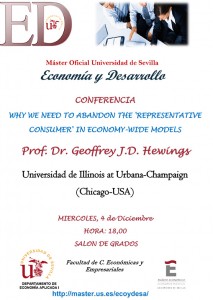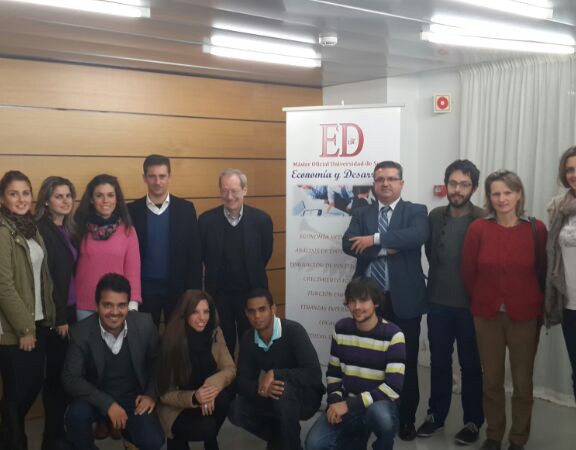- Doctorado en Ciencias Económicas, Empresariales y Sociales - Universidad de Sevilla
Actividades
 Prof. Dr. Geoffrey J.D. Hewings
Prof. Dr. Geoffrey J.D. Hewings
Regional Economics Applications Laboratory (REAL). University of Illinois at Urbana-Champaign (USA)
4/12/2013
The seminar addressed different issues related to the economic and intergenerational welfare conditions given the future demographic changes, with particular focus at the regional level. Prof. Hewings defended the convenience of abandoning the «representative consumer» hypothesis in order to rigorously quantify the dynamic effect of demographic changes on the regional economies, especially, when considering those changes associated with an aging population and immigration processes. He discussed in his presentation the link between demographic changes and their economic impacts, with some empirical analysis derived from the Chicago economy.
El Prof. Hewings participa en nuestro programa de doctorado como investigador externo. Esta conferencia la pronunció en el marco del Máster en Economía y Desarrollo. Adjunto cartel y foto.

